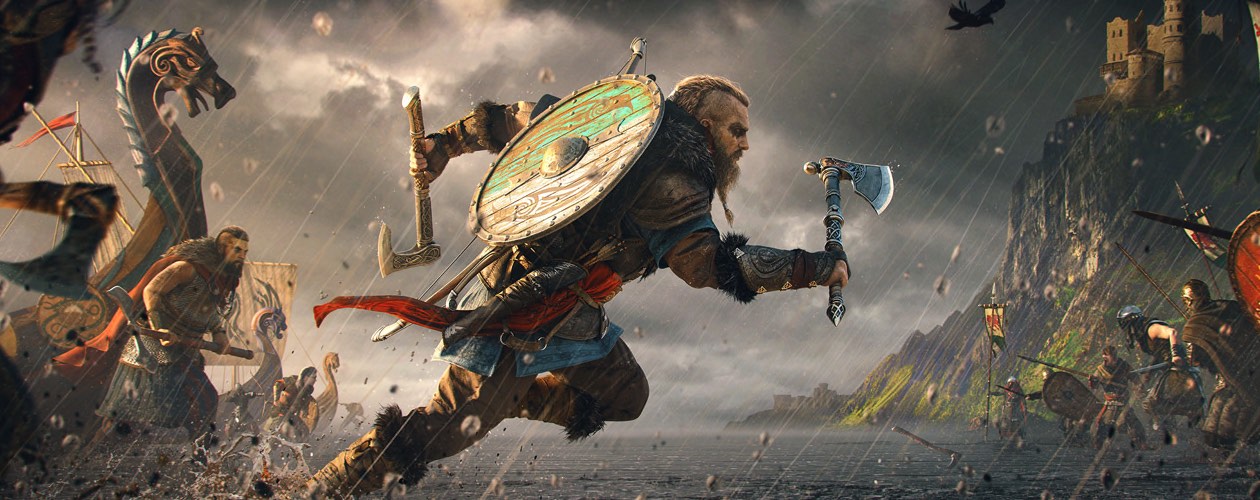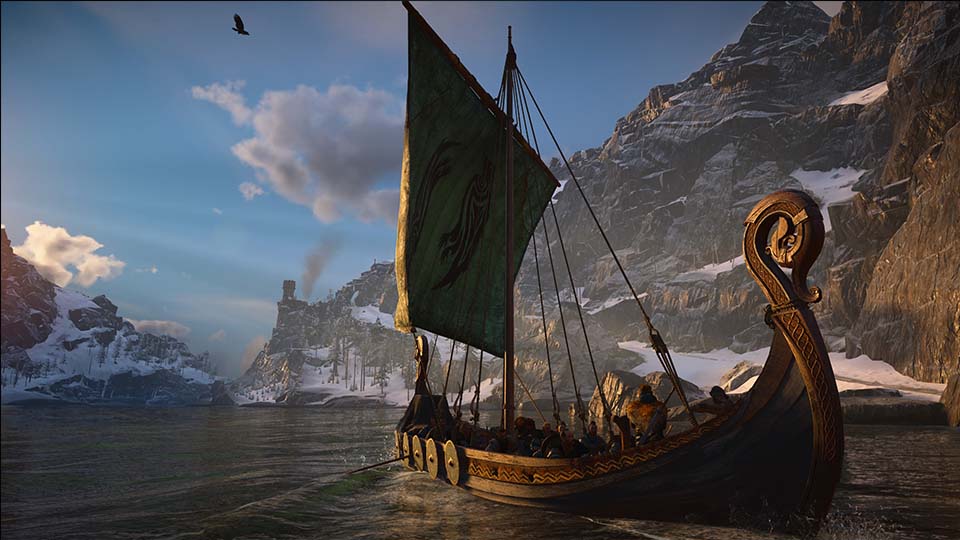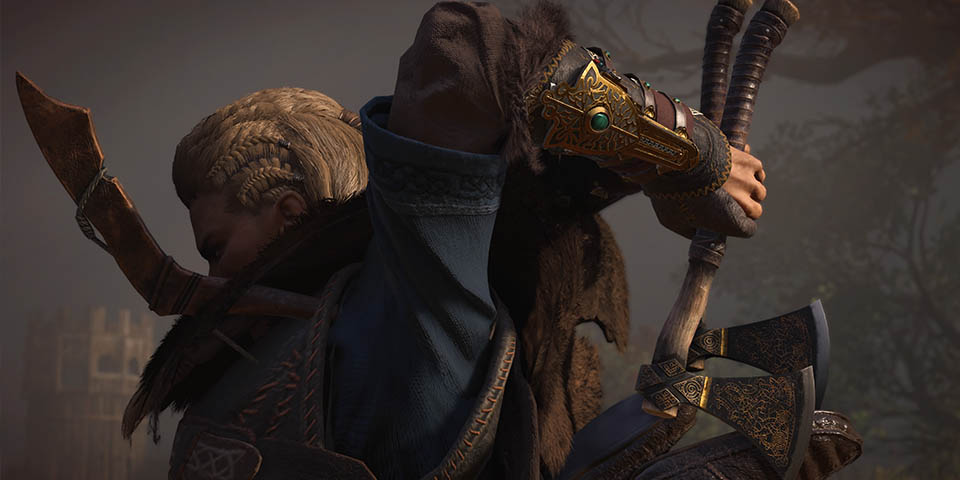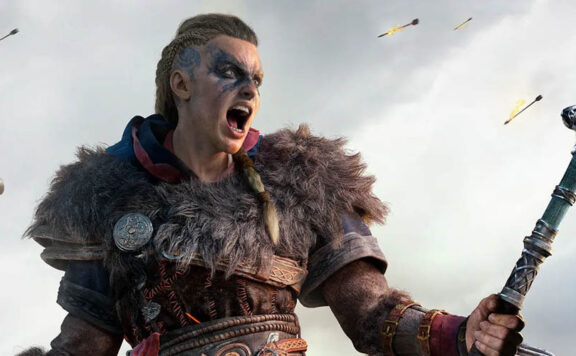Since closing out Ezio’s trilogy almost a decade ago, Assassin’s Creed has meandered both terms of its historical settings and level of quality. Although I’ve played every mainline entry in this beloved series, I haven’t enjoyed one as much as I did Revelations and its masterful predecessor, Assassin’s Creed: Brotherhood. While these games are vast and visually breathtaking, their stories and rehashed jumble of gameplay mechanics have ultimately held them back from greatness.
With that said, Assassin’s Creed Valhalla is the closest this series has come to recapturing that former glory, delivering a Viking epic that has already amassed a throng of fans. This is the culmination of what Ubisoft had started with Assassin’s Creed Origins, pivoting the series towards a Witcher style of action RPG.
It’s a triumph though not without flaws. Assassin’s Creed: Valhalla may not be the long-overdue return to the series’ roots some die-hard fans have been dying for, but easily succeeds in being one of the strongest open world games of 2020 and likely one of the first you’ll play on PS5 or Xbox Series X|S.
Valhalla has you plugging into yet another Animus, as Layla, Shaun, and Rebecca have fled to another location in the present day story arc of the series. At this point it’s honestly very difficult to care about what these three are up to in the modern day, despite it arguably being the most important story thread in Assassin’s Creed. Ubisoft dropped the present day ball a long time ago and have been fumbling ever since. Thankfully, Eivor’s savage saga – and Valhalla’s myriad other Vikng tales – are more than enough to hold your attention.
“The Templars are being naughty again” seems to be etched in permanent marker on whatever whiteboard the Assassin’s Creed writers pen their ideas for every sequel, The same applies here with Valhalla, though Ubisoft cleverly weave this omnipresent thread through a story of warring kings and conquest that consumes England during the 9th century.
The invading Norse scour the country in search of land to settle on and kingdoms to raze. While some employ brute force tactics, others seek to form pragmatic alliances, with Eivor’s Raven clan caught in the middle.
Assassin’s Creed: Origins and Odyssey were both colossal games, and while the prospect of a 60+ hour RPG may be heavenly for some fans, a great many found this approach to be too overwhelming. Cleaving through a vast landmass populated with endless filler content is a fast track to fatigue, and one Valhalla mostly manages to sidestep.
Assassin’s Creed: Valhalla guides & more from TheSixthAxis
- Assassin’s Creed Valhalla Review in Progress
- Assassin’s Creed Valhalla: The Stench of Treachery quest guide
- Assassin’s Creed Valhalla trophy list
- Is Assassin’s Creed Valhalla historically correct? We ask the experts
- Assassin’s Creed Valhalla Guide – 10 essential tips & tricks
Don’t get me wrong, there’s an absolute shedload of content here. Once Ubisoft have finished rolling out their season pass (which will take us to both Ireland and Paris) this game could easily clock in at well over a hundred hours. However, the way its portioned out makes Valhalla much easier to digest than its direct predecessors.
Once you’ve established Ravensthorpe – your own Viking settlement in the heart of England – you’ll pledge to seek the alliance of surrounding counties and kingdoms, embarking on a new main story arc every time you do so.
Although you’re free to go wherever you want (I immediately took a trip down south to the Isle of Wight) Valhalla’s story structure and the power level tied to each region helps to softly funnel you from one area to the next.
Each story arc has its own tale to tell. Some are stronger than others, yet they all feed into Eivor’s development as a character, often giving the player multiple approaches to dealing with certain scenarios. Speaking of Eivor, regardless of which gender you choose, they serve as a superb avatar for your Viking romp across England, injecting just enough of their own character while letting the player forge their own destiny.
Once again, Assassin’s Creed is split between the three core pillars or combat, stealth, and exploration. Valhalla unapologetically leans on the latter and you can’t exactly blame Ubisoft. Their depiction of war-torn medieval England in all its wild and mysterious wonder is enchanting yet gritty, occasionally spliced with fantasy elements and tying into Norse mythology.
Stealth is straightforward, enabling those who want to play as the silent assassin type. By mastering the hidden blade and Eivor’s bow, you can clear entire camps without being detected. Ducking in and out of cover, monitoring patrols, and popping precise headshots feels fun and fluid, especially with raising your hood and blending into crowds a returning option.
However, the Vikings weren’t exactly known for skulking in the shadows. I spent most of my time facing my enemies head-on, swinging axes, splintering shields, and chopping off limbs. Close combat relies on a mix of light and heavy attacks combined with blocks, dodges, and well-timed parries.
It ticks all the boxes on a very basic checklist and although Eivor’s bonus abilities allow you to slot eight flashy combat techniques, the fighting gameplay is a bit bland overall. I enjoy it in small bursts, but after a while I kept going into autopilot, mindlessly mowing down entire warbands.
Instead of skillful duels between a handful of warriors, Valhalla prefers Viking raids with dozens of fighters launching themselves into the fray. As a result, battles are bigger yet more chaotic, most enemies defaulting to the same basic AI, while others act as though they’re in a world of their own.
However you approach Assassin’s Creed: Valhalla, you’ll earn a steady trickle of resources and experience points which are then funnelled back into your settlement and filling out Eivor’s ginormous skill tree. Whether you sail your longboat to a guarded monastery or power through one of the game’s long story arcs, Valhalla will leave you satisfied with the rewards offered.








BryOnRye
14th century? Unless there’s a leap forward of 500 years at some point in the story, shouldn’t it be the 9th?
Stefan L
You’re right. Jim got a teensy bit confused there!